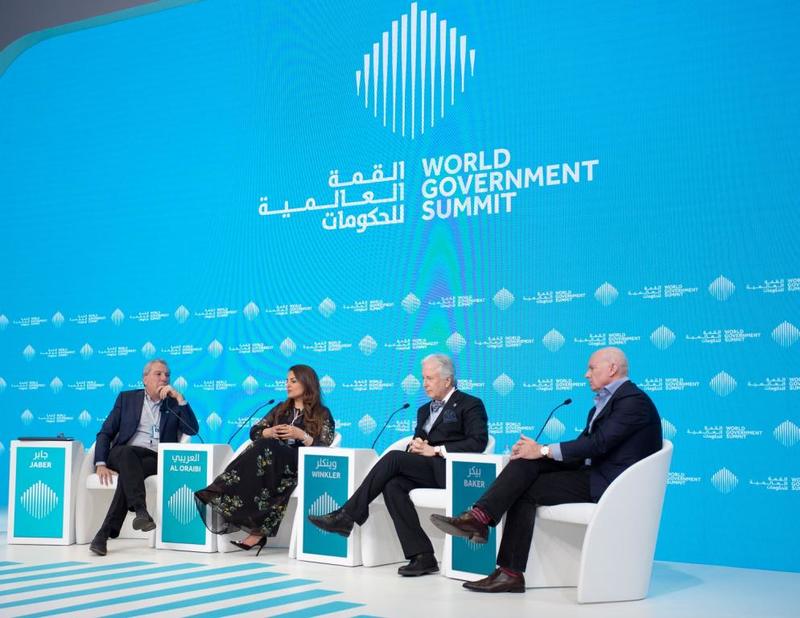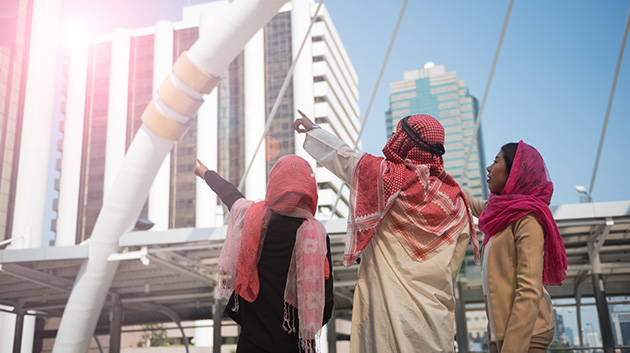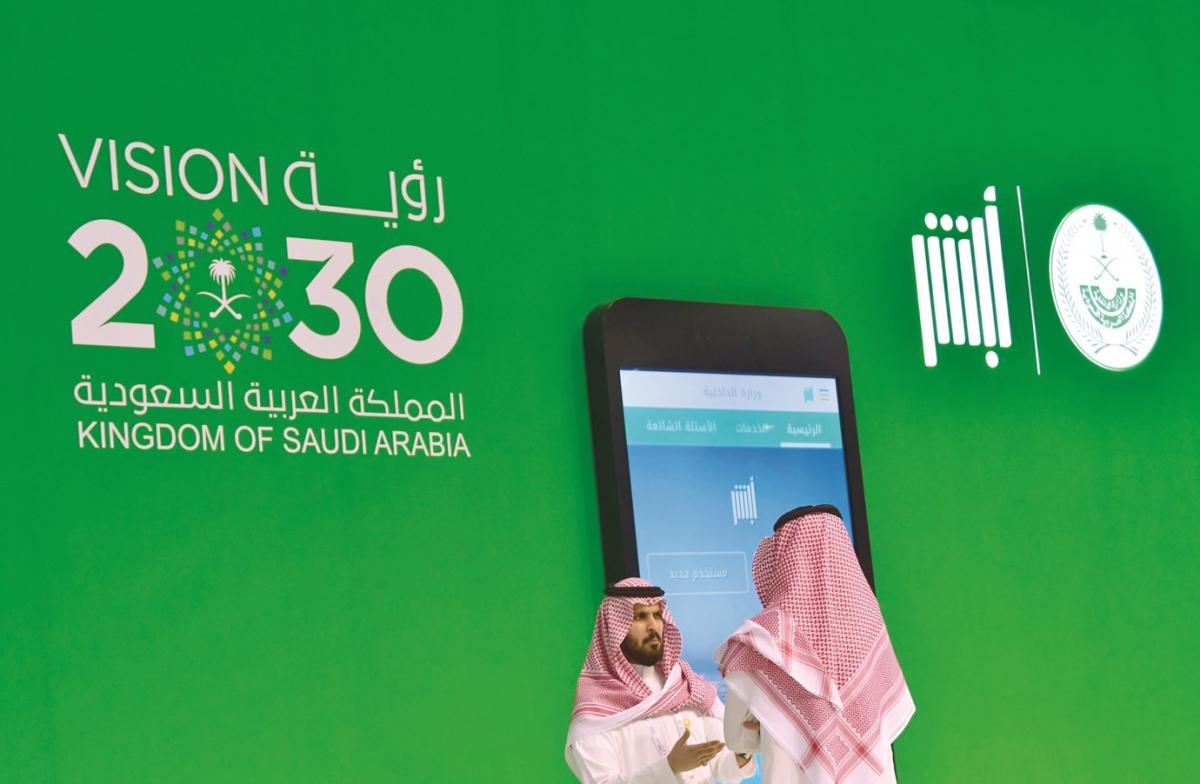AI has become the basis of the new geopolitical competition; Russian president Vladimir Putin has even gone as far as to say that whoever masters AI will become the master of the world. Many reports have indicated that the future economic battles will be high tech battles, as most of the world powers are racing to reach the summit of this growing industry. Recent news of China’s supremacy in AI technology has prompted other countries to move fast, this is perhaps the reason why US President Donald Trump has ordered more resources and investment from federal agencies to increase research and training into AI technology.
Saudi Arabia is no different; back in August 2019, a royal decree was issued creating the Saudi Authority for Data and Artificial Intelligence. This is part of the wider Vision 2030 which aims to make Saudi Arabia a major AI hub by the end of the upcoming decade. Crown Prince Mohamed Bin Salman emphasized this goal of making Riyadh a leader in this field during his address at the G20 Summit in Osaka, Japan.
AI AND INTERNATIONAL COMPETITION
The famous American entrepreneur, Elon Musk, has recently said that international competition over Artificial Intelligence might pave the way for a third world war. Musk is, of course, one of the world’s most prolific tech and AI moguls and recognizes firsthand the risks AI can pose to the world. He, along with other AI entrepreneurs from 26 countries have recently signed a memo warning the UN against the development of lethal tech weapons, and that was ahead of the Joint International Conference on Artificial Intelligence.
While Germany, Japan, Russia, and South Korea are pioneering nations in artificial intelligence, it is Washington and Beijing who are going head to head to establish global supremacy in the field. That isn’t to say that other countries aren’t looking into AI, as Saudi Arabia, the UAE, Canada, Denmark, Finland, France, India, Singapore, South Korea, Sweden, and Taiwan have been developing strategies to kick start their venture into new technologies.

AI, WASHINGTON AND BEIJING
Even though the US, UK, and Canada have been the largest AI nations for the past few decades, the rapid rise of China has driven more international investments towards Beijing. Naturally, China has made good use of these investments by developing its core AI assets. In his book, “AI Superpowers: China, Silicon Valley, and the New World Order”, Chinese AI expert Kai-Fu Lee said that Beijing’s growth in AI is dependent on the operational knowledge it has on large tech corporations such as Google, Microsoft and its role as the operational manager of Chinese firm Sinovation. Beijing, along with individual Chinese investors, has been channeling huge sums of money to the development of artificial intelligence. By 2017, Beijing will dominate nearly 48 percent of total AI funding. As it stands, China is surpassing the US in AI tech development and has recently announced long-term plans and goals that would place it as the comfortable leader of AI by the year 2030.
Fu Lee explains that China’s Collective Innovation and Entrepreneurship campaign back in 2015 helped launch 6600 small companies specialized in AI technology. It is estimated that by the year 2030, China will contribute about $ 7 trillion of global gross product for artificial intelligence. Furthermore, Fu Lee has emphasized that the Chinese population has become particularly tech-savvy, even those who don’t own/can’t use a personal computer can use a smartphone proficiently. Smartphones have virtually become hi-tech mobile wallets to the regular Chinese citizen. Just to put into perspective just how much e-commerce has become a regular part of Chinese life, at the end of the year 2017 735 million Chinese residents (roughly 65 percent of its population), were able to use their smartphones for payment.
In March 2017, AI was mentioned in a government report in which Beijing listed its plans on transforming younger generations into regular users of AI. Said plan is an ambitious one split into three time periods; by 2020 China aims to grow its AI industry by 150 billion Yuan, 400 billion Yuan by 2025 and 1 trillion Yuan by 2030.

That has made several Western states, most notably the United States, anxious. According to a recent report on US national security, China’s rapid AI development will upset the balance among the world’s economic and military superpowers. The report also said that China’s capabilities do not just make it a competitor for the US, rather its capabilities now make it possible for it to overtake the US in AI technology.
Robert Work, former US Deputy Secretary of Defense, has recently said that the US has two choices, either become the leader of this current AI revolution or become a victim of it. As such, President Donald Trump was quick to sign an executive order promoting artificial intelligence. To do that, federal agencies will facilitate investment into research and development in AI, promote information sharing, build new computer models, set clear technical standards to promote workforce development and give priority to technology. This comes at a time when the Defense Department has added 75 million dollars to its yearly budget to further develop its AI capabilities.
Other Western states have taken initiatives as well, the UK has announced a recent deal between private and public companies which would provide 200 million dollars towards AI investment. The British government has also said that it plans to provide funds for academic research and 1000 PhDs in AI.

SAUDI ARABIA AND AI DEVELOPMENT
Saudi Arabia has recently shown interest in AI and has even gone as far as to give Sophia the Robot Saudi citizenship, marking the first time a robot has been granted such a privilege, but the country’s ambitions have not stopped there. Riyadh is set to host the upcoming AI International Summit in March 2020, where multiple experts, scientists, companies, and entrepreneurs from around the world will meet to exchange ideas over the industry’s future.
The summit will take place in the King Abdulaziz International Conference Center will be chaired by Crown Prince Mohamed Bin Salman, who is also the Chairman of the Board of Directors of the Saudi Authority for Data and Artificial Intelligence. The Head of the Board of Organizers of the Conference, Dr. Abd Allah Bin Sharaf El Ghamdy, has said that the conference will hold discussions on the new development of AI and how we can utilize such new technologies for the betterment of humankind.
The summit’s agenda is a diverse one filled with workshops, lectures, and showcases displaying the latest inventions and innovations in this growing industry. As such, this summit aims to be the largest of its kind.
The Kingdom, according to academic trends, is seeking to upgrade its information networks which will become the basis of its future progressive hi-tech economy. Thanks to Saudi Arabia’s efforts its economy is developing in a cumulative manner, rapidly moving towards its goal of having a technologically based economy. Accurate estimates suggest that Saudi Arabia has more than $ 1 trillion in data which is poised to add unprecedented value to Saudi Arabia’s economy.
According to new studies, AI has the potential to add 215 billion Riyals to the Saudi economy by 2035. The Kingdom is planning to use AI in the Hajj and Umra industry; as such it is hoping to increase its yearly pilgrim attendance from 8 million to 30 million by 2030. It should also be noted that Saudi Arabia has a good source of human capital that can help its pursuit of a tech-based economy. Seventy percent of its population is under the age of 30, and it is that demographic that is most suited to go into tech-based fields. Thousands of young Saudis have undergone training in digital programming, thus creating a demand for technical work at a faster pace than most other countries in the Middle East and this can be seen in the many job ads asking for employees who are proficient in AI technology. Young Saudis are more accepting of these new fields as many of them have are well versed in blockchain technology, and many even take part in “hackathons”. This growing familiarity with programming might pave the way for schools to introduce such AI subjects to give younger students a head start in the field.
Saudi Arabia has also started building Neon, a new hi-tech mega-city that will cost around 500 million dollars and is part of the Vision 2030 initiative which aims to make the Saudi economy based on industry and information. As a result, the Saudi government is looking to increase its use of robotics, which is why it has established the National Center for Robotics Technologies and Intelligent Systems in the King Abd El Aziz City for Science and Technology (KACST). Recently, the Saudi Ministry of Education “hired” a robot that serves customers within the Kingdom of the first robot in the Ministry of Education, which serves customers, delivers messages to visitors to the exhibitions and provides activities for the Technical and Vocational Training Corporation. The Health Ministry has also announced the development of a “smart pharmacy” which will be established in King Fahad hospital in Tabuk.
Economists estimate that in the coming years that the economic returns from artificial intelligence projects will account for 12.4 percent of its GDP. To highlight the growing importance of this industry for the Saudi economy, the government has introduced many charities that are training young Saudis in the field. One of such charities is the MiSk Academy, which is part of the Prince Mohamed Bin Salman Foundation and has trained thousands of young boys and girls in digital programming and AI.

The Crown Prince has also recently founded the Prince Mohammed bin Salman College for Cybersecurity, Artificial Intelligence, and Advanced Technologies. In spite of its seemingly sudden founding, its establishment did not happen overnight; as a matter of fact, it happened as a result of a concerted effort from the STC Academy in Riyadh and the Saudi Federation for Cyber Security and Programming (SAFCSP). Abdullah Alswaha, the current Minister of Communications and Information Technology, has said that the Kingdom is focusing on its digital present and its high tech and AI-based future, thus enabling it to become a future leader in technology and innovation.
Finally, the Prince Mohammed bin Salman College for Cybersecurity, Artificial Intelligence, and Advanced Technologies is aiming to fulfill the goals set in Vision 2030, by which new technology will enhance the efficiency and performance of both government and private sectors stimulate entrepreneurship and support young people. Most importantly, the Kingdom aims to utilize AI to provide advanced services for its citizens.







